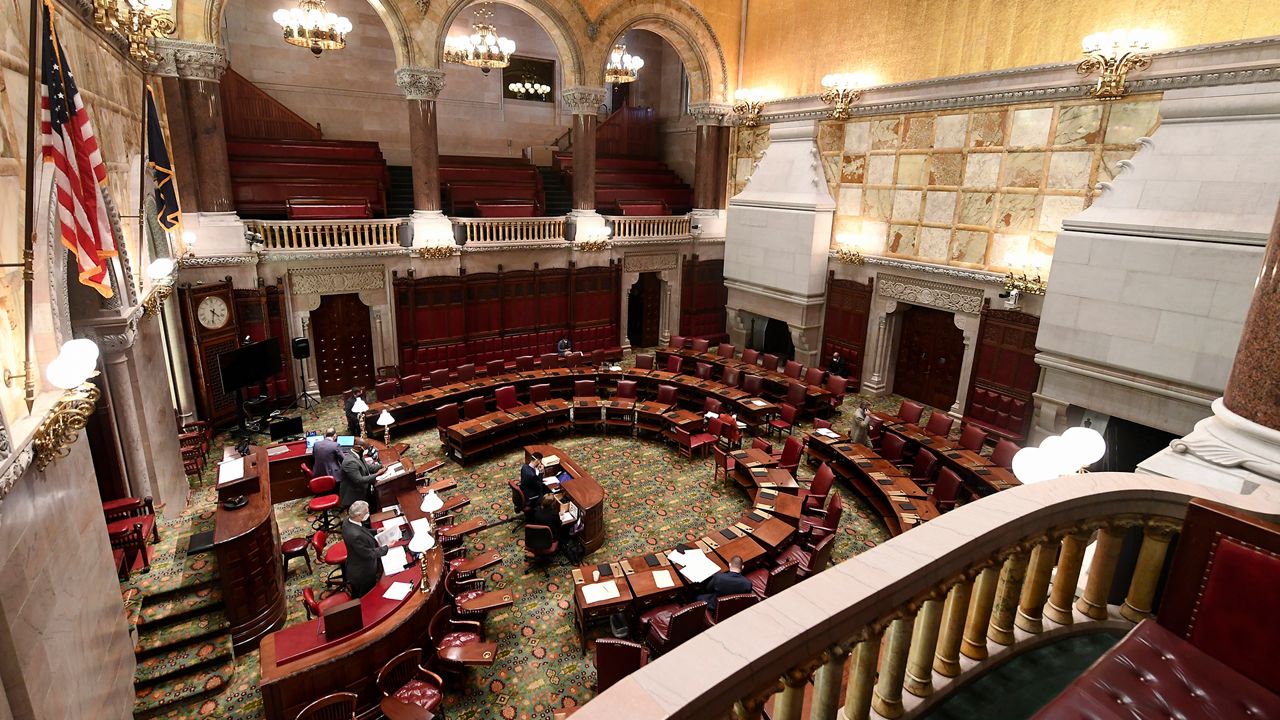The history of the 46th state Senate district is an oddly tortured one: Drawn in the 2012 round of redistricting by Republicans for a Republican, it stretches from the Mohawk Valley to suburban Albany County and then down through the Hudson Valley.
And now it's the center of a major Democratic win that could solidify the party's control of the state Senate in a new way.
Late last week, Democrat Michelle Hinchey declared victory in the race over Republican Richard Amedure, putting the conference on the cusp of holding a supermajority in the state Senate, propelled by an advantage with absentee ballots.
"Our world has changed immensely since we started our campaign, but that didn’t stop voters from coming out in droves to make their voices for change heard," Hinchey said in a statement.
"I decided to run for office to help make our Upstate communities stronger for the future, and I am tremendously thankful for everyone in the 46th District who heard our message and put their faith in me to be a strong Upstate voice in Albany. I could not be more excited or humbled to have the opportunity to represent them in the State Senate."
Congratulatory statements arrived in in-boxes from a variety of sources: the Working Families Party, Senate Majority Leader Andrea Stewart-Cousins and the group Eleanor's Legacy, which supports women who support abortion rights running for office.
And Hinchey's victory in the larger context is potentially a signal moment for Democrats in Albany and the changing nature of the state Senate itself, which had been the final bastion of Republican power in New York.
Hinchey's win comes as Democrats have made gains in upstate cities, including once-Republican held seats in Buffalo and Rochester. Democrats in the coming 2021 session have seats in upstate urban centers, exurban communities, suburan districts and in New York City.
But what will the added muscle in the Senate be used for? Democrats have toggled between measures favored by a suburban base -- a permanent property tax extension -- to long-sought criminal justice reform measures like curtailing cash bail and making it easier to gain access to police disciplinary records.
State Demcoratic Committee Chairman Jay Jacobs on Sunday predicted (and in a way urged) cautious moderation from the state Senate even with its swelled majority given the large tent the party now finds itself with in the chamber.
"I think that the composition of the caucus will have a lot more to do with what policy direction it takes than the sheer number of members it ends up with," he said. "We all want more progressive legislation. But this election demonstrated that we have to push forward carefully, making sure that our suburban and rural constituencies understand the policies we are promoting and the benefits they create."
The district was created as a 63rd seat in the chamber, carved out of the state to give Senate Republicans more of a cushion ahead of what was expected to be a difficult election cycle with President Obama again at the top of the ballot.
Democrat Cecilia Tkacyzk would upend the carefully laid plans for Republicans and then-Assemblyman George Amedore, who would ultimately and narrowly win the seat. Amedore came back and unseated Tkaczyk in 2014. Amedore is retiring this year.
Gov. Andrew Cuomo has said, repeatedly, his agenda aligns with Democrats in the state Legislature, where Assembly Democrats have held power since the post-Watergate era. Cuomo will have to navigate this newly evolved Albany as well in 2021 and has a relatiosnhip with legisaltive Democrats, especially in the state Senate, that can run hot and cold.
Still, Cuomo has sought closer ties with suburban lawmakers, especially on Long Island, and the state Democratic Committee provided some financial support to lawmakers in battleground races as Election Day approached this year.



